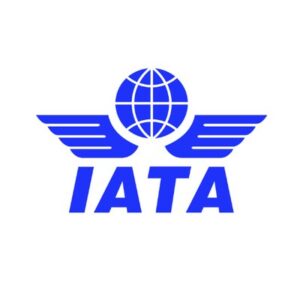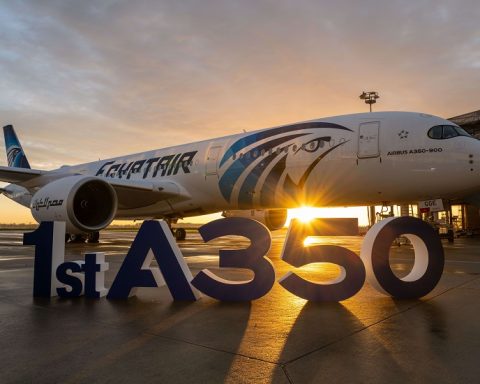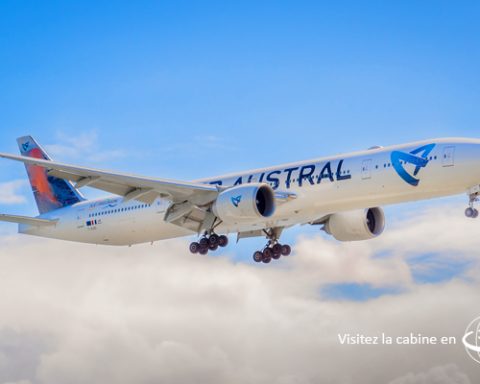By Roland Ohaeri
 The International Air Transport Association (IATA) has announced that its projections for a tripling of Sustainable Aviation Fuels (SAF) production in 2024 to 1.9 billion liters (1.5 million tonnes) are on track. This would account for 0.53% of aviation’s fuel need in 2024. To accelerate SAF use, there are several policy measures that governments could take, IATA said.
The International Air Transport Association (IATA) has announced that its projections for a tripling of Sustainable Aviation Fuels (SAF) production in 2024 to 1.9 billion liters (1.5 million tonnes) are on track. This would account for 0.53% of aviation’s fuel need in 2024. To accelerate SAF use, there are several policy measures that governments could take, IATA said.
“SAF will provide about 65% of the mitigation needed for airlines to achieve net zero carbon emissions by 2050. So the expected tripling of SAF production in 2024 from 2023 is encouraging. We still have a long way to go, but the direction of exponential increases is starting to come into focus,” said Willie Walsh, IATA’s Director General.
According to IATA, increasing the production of renewable fuel is key to increasing the potential of SAF as SAF is part of renewable fuel. Specifically, “Some 140 renewable fuel projects with the capability to produce SAF have been announced to be in production by 2030. If all of these proceed to production as announced, total renewable fuel production capacity could reach 51 million tonnes by 2030, with production capacity spread across almost all regions, IATA noted.
IATA revealed that, through the International Civil Aviation Organization (ICAO), governments set an ambition to achieve a 5% CO2 emissions reduction for international aviation from SAF by 2030. To achieve that ambition, around 27% of all expected renewable fuel production capacity available in 2030 would need to be SAF. Currently, SAF accounts for just 3% of all renewable fuel production, IATA explained.
“The interest in SAF is growing and there is plenty of potential. But the concrete plans that we have seen so far are far from sufficient. Governments have set clear expectations for aviation to achieve a 5% CO2 emissions reduction through SAF by 2030 and to be net zero carbon emissions by 2050. They now need to implement policies to ensure that airlines can actually purchase SAF in the required quantities,” said Willie Walsh.
In terms of potential policy measures to increase SAF production, IATA stated that there are several potential solutions to accelerate aviation’s access to critical SAF quantities. These include diversifying feedstocks, in which case IATA said about 80% of SAF expected to be produced over the next five years is likely to come from hydrogenated fatty acids (HEFA) such as used cooking oils, animal fats, etc. Accelerating the use of other certified pathways and feedstocks including agricultural and forestry residues and municipal waste will greatly expand the potential for SAF production, IATA stated.
Additionally, co-processing could boost SAF production, whereby existing refineries can be used to co-process up to 5% of approved renewable feedstocks alongside the crude oil streams. This solution can be implemented quickly and materially expand SAF production. While IATA said that “policies must be put in place urgently to facilitate consistent life-cycle assessments,” IATA also underlined the importance of incentives to improve output mix at renewable fuel facilities as well as incentives to boost investments in renewable fuel production.
“Incentives to build more renewable energy facilities, strengthen the feedstock supply chain, and to allocate a greater portion of renewable fuel output to aviation would help decarbonizing aviation. Governments can also facilitate technical solutions with accelerated approvals for diverse feedstocks and production methodologies as well as co-processing renewable feedstocks in crude oil plants. No one policy or strategy will get us to the needed levels. But by using a combination of all potential policy measures, producing sufficient quantities of SAF is absolutely possible,” said Walsh.
IATA has also revealed that “a recent IATA survey revealed significant public support for SAF,” noting that “some 86% of travelers agreed that governments should provide incentives for airlines to use SAF. In addition, the vast majority of air passengers agree (86%) that leading oil corporations should prioritize the production of SAF.”
IATA (International Air Transport Association) represents some 330 airlines comprising over 80% of global air traffic.




